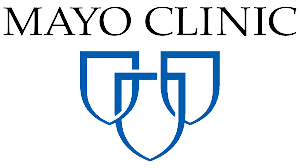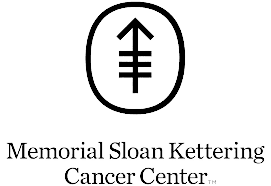
Clinical trials in the treatment of cancer
Cancer trials in China and the USA demonstrate varied methodologies and progressions. China’s swift expansion in clinical investigations presents a flourishing terrain for pioneering trials, frequently emphasizing the amalgamation of traditional Chinese medicine and extensive patient pools.
In contrast, the USA showcases a sturdy foundation and rigorous regulatory structure, nurturing revolutionary trials in precision medicine and immunotherapy. These countries propel international oncology advancements, harnessing distinct capabilities to tackle the intricacies of cancer and amplify therapeutic effectiveness on a global scale.
Clinical trials in the United States and China are a key part of making cancer care better. These clinical trials are specially important for patients who have exhausted all the forms of treatment and trials are one of the options left. These trials are an important link between scientific findings and treatments that work. They help researchers figure out how safe and effective new types of treatment, like targeted medicines and immunotherapies, are. Clinical studies are very important because they show how well experimental drugs work, what side effects they have, and what the best doses are. These studies also help with personalized medicine by finding genetic markers that show how a person will respond to a treatment. Patients who take part in clinical studies get access to cutting-edge treatments and help shape the future of cancer care at the same time.
Cancer clinical trials in the USA
As per the official website (https://clinicaltrials.gov/) currently there are more than 43,000 cancer clinical trials happening in United States. Out of these trials there are more than 7500 trials that are in recruitment phase. These trials covers almost all the types and area of cancer and hematological malignancies.
In the United States, there are many different kinds of cancer clinical trials that are done to test new treatments, improve current treatments, or look for ways to prevent or detect cancer. Here are some popular kinds of clinical trials for cancer:
Treatment trials: These tests look at new treatments, such as chemotherapy drugs, tailored therapies, immunotherapies, or radiation therapies. They want to find out if these treatments are safe and if they work better than normal therapies.
Prevention trials: The goal of these trials is to find ways to avoid cancer or lower the chance of getting it. They might include things like medicines, vaccines, changes in living, or dietary changes.

Screening trials: These tests look at new ways to find cancer early or to find people who are at a high risk of getting cancer. They want to make screening methods better and increase the number of people who are found early.
Diagnostic studies: In these trials, new diagnostic tools or tests are tried out to make it easier and more accurate to find cancer. They might use imaging methods, lab tests, or genetic testing.
Supportive care studies look at ways to improve the quality of life and deal with the symptoms and side effects of cancer and its treatment. Supportive treatments, ways to deal with pain, or psychological interventions may be used.
Genetic and biomarker-based studies: The goal of these trials is to find specific genetic mutations or biomarkers that are linked to certain types of cancer. They want to make medicines that are specifically designed for people with certain genetic profiles.
Combination trials: These tests look at how well different treatments, like chemotherapy and immunotherapy, work when they are used together to see if the results are better than when each treatment is used alone.
In phase 0 trials, only a small number of people take part, and the goal is to get basic information about how a drug or treatment works in the body. They might help experts decide if they want to do bigger tests or not.
Phase I, II, and III trials are done in order to test how safe, how much, and how well new treatments or approaches work. In Phase I, the safety and dosage are tested. In Phase II, the effectiveness and side effects are looked at, and in Phase III, the new treatment is compared to the usual therapy in large groups of patients.
Phase IV trials: These are also called “post-marketing trials,” and they happen after a drug has been approved by the government. They keep an eye on how safe and effective the treatment is over the long term in a bigger group of people.
These are some examples of the kinds of cancer clinical studies that are done in the United States. Researchers and the groups in charge of regulating the study set clear eligibility requirements, procedures, and goals for each trial. If you want to take part in a clinical study, it’s important to talk to your doctor and find out what trials are going on in your area.
Cancer clinical trials in China
Since the 1960s, cancer clinical trials in China have made significant breakthroughs due to governmental initiatives, policy reforms, and technological innovation. Between 2009 and 2018, the number of cancer clinical trials increased each year by an average of 33%, reaching a peak of 2602 trials registered in 2020. This rapid growth indicates both the increasing need for new treatments and the Chinese government’s dedication to enhancing public health through innovation.
Although progress has been made, there are still obstacles to address, especially concerning informed consent procedures. Patients in cancer clinical trials in China frequently have misunderstandings regarding details including risks, rights, and options. The Chinese government has implemented more stringent informed consent criteria and norms, along with promoting increased transparency and patient involvement in the study process.
Phase I clinical trials are an essential part of medication research and development in China. In 2020, cancer accounted for about half of all phase I clinical trials, indicating the country’s emphasis on oncological research. The Chinese government’s decision to ease import restrictions for authorized medications in 2017 has promoted partnerships with international organizations and supported the conduct of multisite clinical trials.
Future success in cancer clinical trials in China will depend on sustained investment in infrastructure, education, and regulation. To enhance the scientific integrity and societal impact of cancer research in the region, it is crucial to improve informed consent methods, promote collaborative collaborations, and tackle discrepancies in regional involvement.
Process of recruitment
You need to submit following medical reports:
- Complete medical summary from current treating doctor.
- Latest blood reports
- Latest PET CT Scan report
- Biopsy report
- Any other scans and reports available
Our specialist doctor will go through your medical reports and let us know about the availability of trials for your type of disease and disorder. At this point of time, patient need to deposit $ 1500 USD (Only for the USA) and we will start sharing your reports with the concerned department in the hospitals and research centers. In case you get enrolled in the trial then this amount will be deducted from our fees.
Click here to send medical reports to enroll in cancer clinical trials.
Once we receive the medical reports, our team will standardize all the documents. At this point of time, we might ask you for further documents and reports. Once that is done, we will look for clinical trials across the cancer centers in United States. We will be sharing your medical reports to all these centers. With soo many ongoing clinical trials, we believe you will be recruited in one of them. Once approval is done, you need to fill certain forms and complete some document formalities. We will also get you medical visa letter and help you with the visa process. At this point of time you need to deposit the full fees of $7,000 USD.
After we send you all the required documents, you apply for medical visa. After you get your medical visa we will guide you with making travel tickets. We will also help you with looking for hotel or guest houses nearby. Upon your landing in US, our representative will receive you at the airport and help you with doctor appointment and other registration formalities.
Which hospital’s are you connected to in China and USA for trials?
We are connected to almost all of the world’s top cancer institutes, hospitals, and research center’s in China and USA.















What are the benefits of taking CancerFax services?
Our medical experts will:
- Collect complete medical documents
- Translate all foreign prescriptions to generic
- Standardize the format of medical document as per USA hospitals guidelines
- Imagings collected in DICOM format as per USA hospital guidelines
- Standardize and then coordinate with hospitals before submitting to their portals
- Coordinate with hospitals to confirm submission
- Work with hospitals to make sure medical documents are accepted for the case acceptance
- If any rejection happens then our team coordinates with hospital and international patient to make sure any missing document be provided
- Our experts ensure there is no rejection and delay
- We work with your hospital to get right format of ‘Medical Letter’ required by your country embassy for USA visa
- Our team coordinate appointment setup with hospital and international patient, to get complete treatment planned
- Our USA expert team do for you A to Z for your USA medical treatment, from collection your documents, submitting, medical letter for visa, appointments setting, stay, food, travel – complete concierge if needed.
What is your fees for the services?
We charge a fees of $ 7000 USD for cancer trial recruitment in the USA and it’s for China. $ 1500 USD is charged at the beginning and rest amount is paid once the recruitment is finalized. Although we have 100% track record of clinical trials recruitment, however in case anyone is not recruited then we refund $1000 USD to the patient.
Clinical trials in cancer
Clinical research is human subjects-based medical investigation. Clinical trials and observational research are the two categories. Observational studies look at people in everyday environments. Information is gathered, participants are grouped according to general characteristics, and changes over time are compared. For instance, to understand more about the impacts of various lifestyles on cognitive health, researchers may gather information over time about a group of older adults through medical exams, tests, or questionnaires. These investigations might suggest fresh avenues for clinical trials.
Clinical trials are research projects conducted on human subjects with the goal of assessing a therapeutic, surgical, or behavioural intervention. They are the main method used by researchers to determine whether a new treatment, such as a new medication, diet, or medical gadget (such as a pacemaker), is safe and effective in humans. A clinical trial is frequently performed to determine whether a new treatment is more efficient than the current treatment and/or has fewer negative side effects.
Some clinical studies examine methods for detecting diseases early on, often even before symptoms appear. Others research strategies to avoid a health issue. A clinical trial may also focus on ways to improve quality of life for those who have chronic health issues or life-threatening illnesses. Clinical trials occasionally investigate the function of carers or support networks.

You may like to read: Cancer treatment in the USA
What are the four phases of clinical trials?
Four stages are included in clinical trials, which are used to evaluate a drug, determine the right dosage, and check for side effects. The FDA approves a drug for clinical use and continues to monitor its effects if studies conducted in the first three phases show it to be safe and effective.
Drug clinical trials are typically broken down by phase. Phase I, II, and III trials are frequently necessary for the FDA to decide whether to approve a medicine for usage.
-
- A Phase I trial tests an experimental treatment on a small group of often healthy people (20 to 80) to judge its safety and side effects and to find the correct drug dosage.
-
- A Phase II trial uses more people (100 to 300). While the emphasis in Phase I is on safety, the emphasis in Phase II is on effectiveness. This phase aims to obtain preliminary data on whether the drug works in people who have a certain disease or condition. These trials also continue to study safety, including short-term side effects. This phase can last several years.
-
- A Phase III trial gathers more information about safety and effectiveness, studying different populations and different dosages, using the drug in combination with other drugs. The number of subjects usually ranges from several hundred to about 3,000 people. If the FDA agrees that the trial results are positive, it will approve the experimental drug or device.
-
- A Phase IV trial for drugs or devices takes place after the FDA approves their use. A device or drug’s effectiveness and safety are monitored in large, diverse populations. Sometimes, the side effects of a drug may not become clear until more people have taken it over a longer period of time.
Why should a patient participate in clinical trials?
Participating in cancer clinical studies can be a good choice for people who have been diagnosed with cancer. Here are a few reasons why people might want to take part in these trials:
Access to New Treatments: Clinical trials give patients the chance to try out new and innovative treatments that may not be offered through standard care. These unproven medicines might be better at targeting certain types of cancer or getting around treatment resistance.
Advanced Medical Care: People who take part in clinical trials are closely watched and cared for by a team of health workers from different fields, such as oncologists, nurses, and researchers. This level of care makes sure that the patients get the best care and help possible during the trial.
Contribution to Scientific Progress: When people take part in clinical trials, they help advance medical understanding and make cancer treatments better for other people. Their work helps to make therapies, diagnostic tools, and methods for preventing disease more effective.
Access to Expert Knowledge: Leading doctors who specialise in certain types of cancer are often involved in clinical studies. Patients can take advantage of these professionals’ knowledge and learn about the latest study findings and treatment methods.
Potential Personal Benefit: Taking part in a clinical study may have direct benefits for you, but this is not a given. Some experimental treatments may work better than the usual ones, giving users better results. During the trial, a patient’s health can also be improved by close tracking and access to supportive care.
Before choosing to take part in a clinical trial, patients should carefully think about the possible risks, benefits, and qualifications. Patients can make better choices about whether or not to take part in a trial if they talk to their healthcare team and ask questions about it.
What happens in a clinical trial?
If you or someone you care about is thinking about taking part in a cancer clinical trials, it is important to know how the process works.
Step 1: Eligibility and enrollment:
The first step is to see if you can take part in the training. Cancer type, stage, previous treatments, and general health may be used to decide who is eligible. You can move forward with enrollment if you meet the standards.
Step 2: Informed Consent:
Before you join a clinical trial, you will be given a lot of information about it, such as its goal, possible risks and benefits, how it will be done, and how long it will last. This makes sure that you know everything about what’s going on and lets you give your consent based on that knowledge.
Step 3: Screening and starting-point evaluations:
Once you sign up, you will go through a number of screenings and initial tests. These tests help find out how the intervention affects your health and set a point of comparison for the rest of the study.
Step 4: Randomization and Treatment Assignment:
In some studies, people are given different treatments based on a chance draw. Randomization helps make sure that the results are fair. You may be given either the normal treatment or the experimental treatment.
Step 5: Treatment and monitoring:
During the trial, you will get the treatment that has been chosen for you while the study team keeps a close eye on you. Regular tracking and follow-up visits are needed to see how well the treatment is working, deal with any side effects, and keep track of your progress.
Step 6: Collecting and analysing data:
During the trial, data will be gathered through things like physical exams, lab tests, imaging scans, and assessments of quality of life. The study team will look at these numbers to figure out how safe, effective, and important the treatment is as a whole.
Step 7: Finish the trial and keep in touch:
Once the trial is over, you will no longer be a part of it. But long-term follow-up may be needed to track any possible late effects or figure out how long the treatment lasts and how it affects mortality rates.
Participating in a clinical trial for cancer is a big choice that can help move cancer research forward and improve treatment outcomes. By learning the above step-by-step process, you’ll be able to make an informed decision and take part in the trial, knowing that you’re helping the fight against cancer as a whole. Before starting this journey of hope and progress, it’s important to talk to your doctor and the study team about any worries and make sure you have all the information you need.
What are the benefits of participating in clinical trials?
Participating in cancer clinical studies in the United States can help both people with cancer and the medical community as a whole in a number of ways. Here are some key advantages:
Access to cutting-edge medicines: Clinical trials give people access to new treatments that are not yet available to the general public. These might include new drugs, therapies, or medical gadgets that might work better or have fewer side effects than what’s already available.
Better quality of care: People who take part in clinical trials often get great medical care from doctors and nurses who specialise in cancer research and have a lot of experience. This can lead to better tracking, more frequent follow-up, and more personalised treatment plans.
Potentially better results: The goal of clinical studies is to improve cancer treatments and, in the long run, make things better for patients. By taking part, you have the chance to help make new, possibly more effective cancer treatments, which could help not only you but also other people who get cancer in the future.
Comprehensive evaluation: Clinical trials have a strict evaluation method that includes thorough assessments, monitoring, and data collection. This can help you learn more about your type of cancer, how it responds to treatment, and other things that might affect your outlook.
Multidisciplinary approach: In many clinical trials, teams of oncologists, surgeons, radiologists, and other experts from different fields work together. This way of working together makes sure you get the most thorough and well-coordinated care possible.
Extra help and resources: Clinical trials often offer extra help and resources, like counselling, educational tools, and ways to deal with side effects or improve emotional health. These tools can make your general experience better and help you deal with the problems that come with cancer treatment.
Costs: In some cases, the costs of the new treatment or procedure being studied may be paid for by the clinical study. Some trials may also pay you money or refund you for some of the costs you have to pay to take part.
Contribution to scientific knowledge: When you take part in a clinical study, you help scientific knowledge in the field of cancer research move forward. Your participation helps researchers and health care workers learn important things about how to treat cancer and could shape future standards of care.
It’s important to remember that taking part in clinical trials also comes with some risks and things to think about, which varies from trial to trial. Before deciding to take part in a trial, it’s best to talk to your healthcare team about the possible benefits and risks and carefully look over the trial’s details.